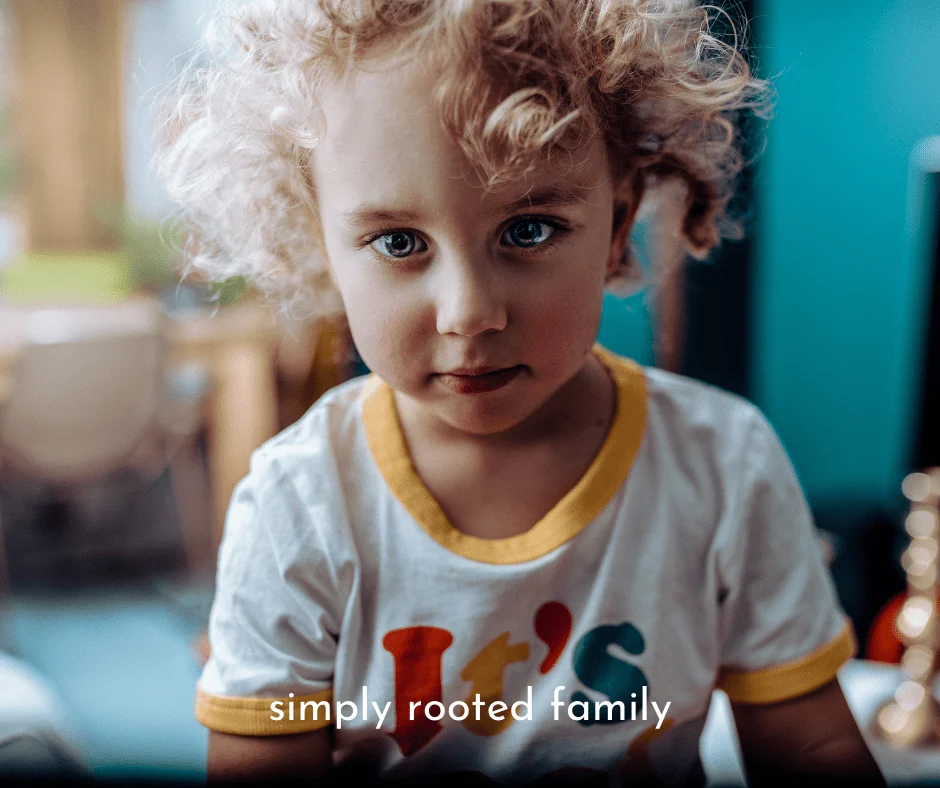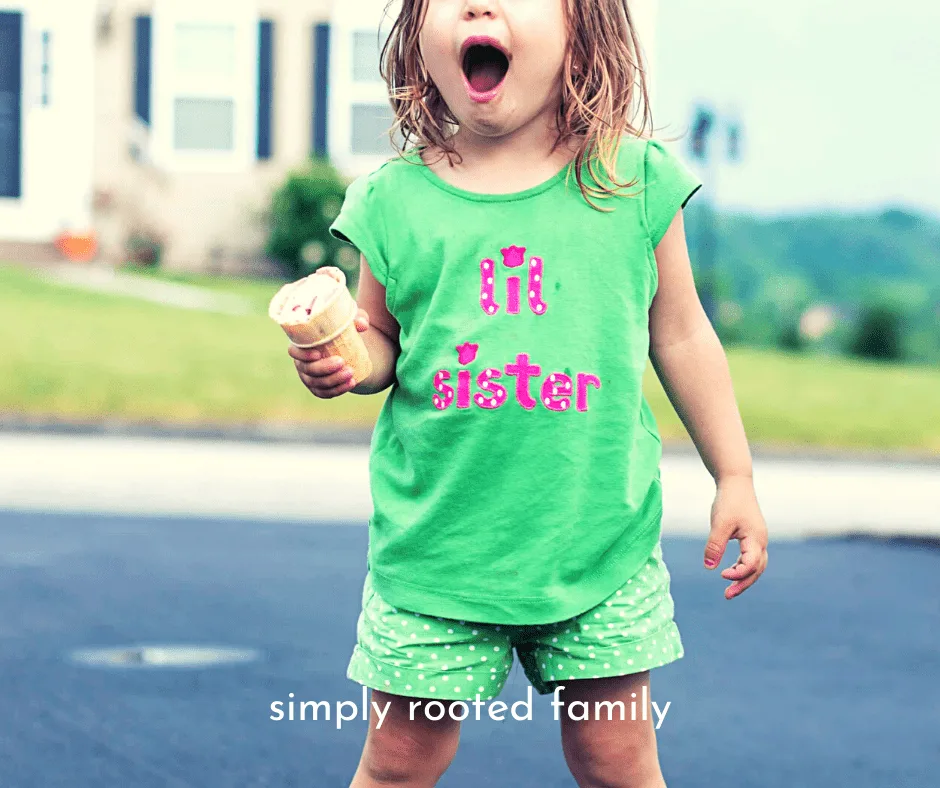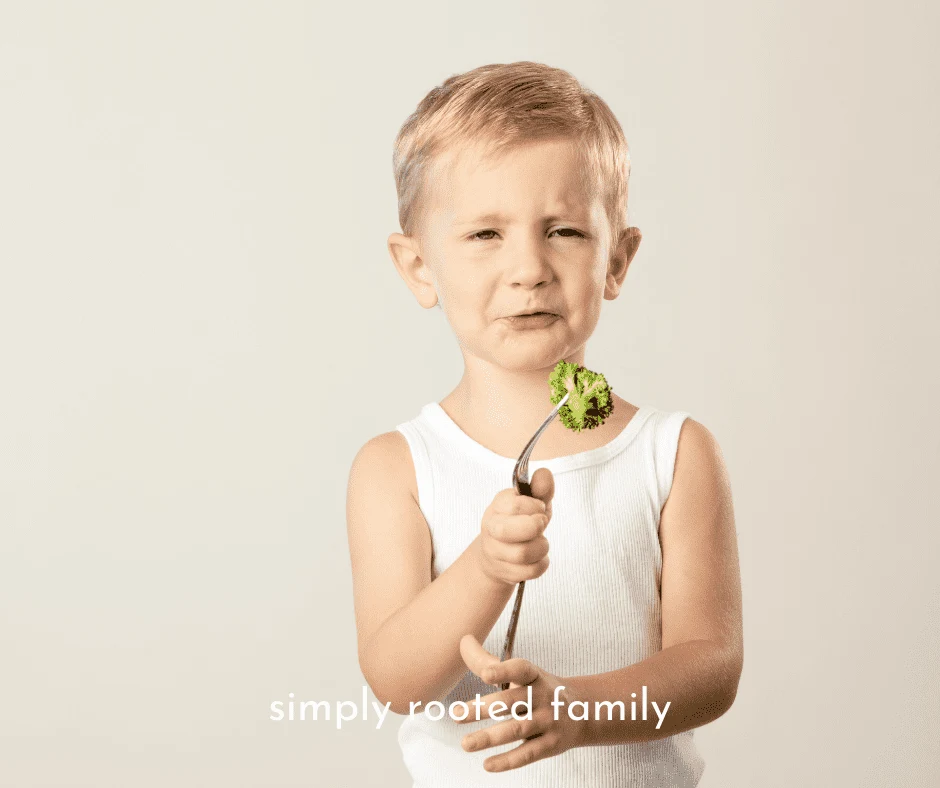Overly sensitive kids might actually have sensory processing issues that cause them to struggle with big feelings and have a hard time with changes around them. Learn what this means and different ways that sensory overload may present in sensitive people. Reach out to your health care provider immediately if your child is having a difficult time with emotions.
Based on my daughter’s dreadful reaction to socks, I can only imagine that this is her point of view each morning:
She wakes up, stretches, and starts to blink her eyes open. She has a drowsy smile on her face, because she is a generally happy kid.
Then suddenly the realization sets in.
It’s a school day. She loves school, but school is not the problem today.
She has to put on shoes to go to school, and you know what that means? Yes, socks, too.
She waits until the last minute, when the school bus is practically in front of our house, before gaining the confidence to approach the 5 pairs of socks that I brought down for her to select from.
She braces hard as she pulls on the first pair. Knives! They must feel like knives based on her shrill reaction. She screams and rips them off her feet. She pleads with me if she can go sock-less.
The second pair she describes as insanely itchy. They must feel like 100 mosquitos crawled in her socks when I wasn’t looking.
After a few more equally uncomfortable, failed attempts, she grabs her stinky unwashed socks out of the hamper. The socks she wears every day. They are the only ones she can bear.
Related: How to Raise Smart Kids who Welcome Challenges

The Highly Sensitive Child
I thought my child was strong-willed, defiant, or argumentative.
I was in denial that something was wrong, and I assumed that she just enjoyed to argue about socks.
In reality, she is a sensitive person
High sensitivity (also called Sensory-Processing Sensitivity or sensory processing disorder) is a temperament type – one that’s shared by 20% of the population.
A sensitive adult who carries the trait of high sensitivity personality trait may even be able to recall experiencing emotional reactivity at a young age.
In the book The Highly Sensitive Child, Clinical Psychologist Dr. Elaine Aron explains common traits that are shared by highly sensitive kids. These traits include:
- Intense emotional reactions- ex: cries easily and is prone to social anxiety
- Deeply processes experiences- thinks about things that happened for a long time aka deep thinkers
- Extra empathetic– shows great concern for others, often compassionate kids
- Easily overstimulated– needs down-time in a quiet place, nervous system revs up quickly at a loud birthday party or even the sound of a flushing toilet
- Sensitive to subtle changes- sensitive to “itchy” clothes, loud noises, and bright lights, picky about food
Do you think your child is strong-willed? Learn how to use gentle discipline to teach strong willed- kids. You may also be interested in learning 5 Must-Learn Conditions that can Mimic Strong-willed behavior, and 6 Myths about Strong-willed Kids we have to abolish.
Peculiar Sensitive Child Symptoms
It isn’t all sock battles in my home.
If you are raising a sensitive individual you may have noticed some unique challenges that they face in everyday life.
In fact, your child’s behavior may have you scratching your head at time.
Once I learned that these were signs of sensory issues, it all started to make sense.
1) Sound or Temperature Sensitivities
It can be the most frigid winter day, and if we put the heat on in the car my daughter screams that she is too hot.
She yells that she can’t breathe and that she is going to sweat to death (her words, not mine).
According to Brain Balance, heat sensitivity and processing disorders are linked, and can lead to immediate emotional distress.
If your emotional child shows signs of temperature sensitivity, ensure they are hydrated, dressed properly, and – most importantly- that you support them.
If they are bothered by loud sounds, be prepared to remove them from stimulating environments, provide headphones, or avoid crowded locations.
Related: How to Encourage Shy Kids to Try New Situations

2) Food Sensitivities
Has your kid said ,”I only eat goldfish crackers”, or do they avoid certain textures of food? Does your child gag at the smell of certain foods?
It is a common that a child’s sensitivity leaks over into mealtime.
This is no surprise since when we eat, we use all of our senses. We smell, taste, see, and feel food.
For loads of information about sensory processing disorder and specifically when it interferes with eating, check out Alisha Grogan, licensed pediatric occupational therapist, at Your Kid’s Table.
You may also like: Why Mommy Temper Tantrums aren’t a Bad Thing: Do this to make it a positive experience

Check out these 8 Must-See Gifts and Products for Sensitive Kids.
3) Clothing Sensitivities
I was excited to show my daughter the new school clothes I bought for her.
We decided to do an at-home fashion show with her new clothes.
The moment she tried on the new pants, she ended that charade immediately. I forgot to cut a tag off of the pants, so the demanded that everything be taken back to the store.
Her socks must be seamless. The pants must be 4 sizes too small. And if there is a tag on her shirt, well you better run.
As it turns out, these are common red-flags for sensory processing disorder. Children with sensory processing difficulties commonly have strong emotions tied to the textures they feel.
Some sensitivities and delays can be seen as early as infancy. Learn these developmental red flags for infants.
Final Thoughts on Over Sensitive Child Symptoms
A kid won’t tell you “I have a sensitive nervous system”, but they may be avoiding extracurricular activities, get overwhelmed at birthday parties, or struggle with normal daily events.
If you notice that your kid has sensitive child traits, reach out to your healthcare provider and speak to a professional.
It is a good thing I came to this realization because my daughter and I were able to develop a special bond when I started to understand her.
Although she still despises socks, we have come a long way in our ability to communicate with each other.
Learn how to use Gentle Techniques to Discipline Sensitive Kids here. Follow us on Facebook for more tips to raise kids who are healthy at home and strong in the world.
For information on Autism Spectrum Disorders, click here.


Donna Vallee
Monday 25th of November 2024
I sure wish this information was around eight years ago. My ten year old grandaughter started sensory issues when she was two. We had some awful times with her. In kindergarden she didn't want to wear underwear!! My daughter spent a ton of money on different pairs to see if there was something she could wear. Now at ten, she wants all her clothes two sizes too big. Thanks for post.
Guide to Parenting and Gently Disciplining Your Highly Sensitive Child - Simply Rooted Family
Wednesday 6th of April 2022
[…] Learn 3 unexpected red flags of sensory disorders. […]
3 Trouble-free Ways Parents Can Handle Meltdowns and Tantrums in Kids - Simply Rooted Family
Wednesday 9th of March 2022
[…] occurs when the sensory input or sensory stimuli (what a person is experiencing from their 5 senses) becomes […]
8 Lifesaving Sensory Gifts Designed For Sensitive Kids and Autism - Simply Rooted Family
Wednesday 9th of March 2022
[…] Related: 3 Sensory Red Flags in Children […]
How to Raise Smart Kids who Welcome Even the Toughest Challenges - Simply Rooted Family
Wednesday 1st of December 2021
[…] You May Also Like: Symptoms of Highly Sensitive Kids […]